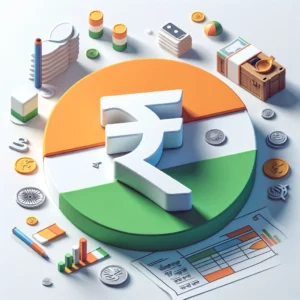GST on Hospital Room Rentals and Beds
- 1 Sep 24
- 8 mins
GST on Hospital Room Rentals and Beds
- Who Is Responsible for Paying GST on Hospital Rooms?
- GST on Hospital Room Rent (Excluding ICU) Above ₹5,000
- GST on Room Rent (Excluding ICU) Over ₹5,000
- Impact of 5% GST on Room Rent on Your Health Insurance
- Effects of GST on Hospital Room Rentals
- Importance of Health Insurance
- Advantages of Investing in Health Insurance
- The Bottom Line
Key Takeaways
- GST of 5% is applied to non-ICU hospital rooms with daily rents exceeding ₹5,000.
- Insurance companies now cover the GST on hospital room rents, affecting the overall claim amount.
- ICU and critical care units remain exempt from the 5% GST charge.
- The introduction of GST may increase the health insurance premium, particularly for higher-end hospitals.
- Patients may opt for rooms under ₹5,000 to avoid GST, influencing their healthcare choices.
Healthcare services have rarely been subject to indirect taxes, mainly due to their importance and to make healthcare expenses budget-friendly. However, during the 47th meeting, the Goods and Services Tax (GST) Council decided to levy GST on non-ICU hospital rooms with a daily room rent of exceeding ₹5,000. This GST on hospital room rent came into action on July 18, 2022.
This detailed overview talks about the consequences of GST on hospital room rentals while decoding the significance of health insurance policy.
Who Is Responsible for Paying GST on Hospital Rooms?
The insurance company will now cover the GST on hospital room rent along with other hospitalisation expenses. As a result, the claim amount submitted by the policyholder will include the GST charges. If your policy has room rent capping, you, as the insured individual, will be directly affected.
GST on Hospital Room Rent (Excluding ICU) Above ₹5,000
The Goods and Services Tax (GST) Council has announced that a 5% GST will be levied on non-ICU hospital rooms with a daily room rent of ₹5,000 or more. This means:
- Zero taxation will be applied to hospital rooms of below ₹5,000.
- The Intensive Care Unit (ICU)/Neonatal Intensive Care Units (NICU)/Intensive Cardiac Care Units (ICCU)/Critical Care Units (CCU) serves as an exemption from the 5% GST charges.
Please note that establishments can not opt for input tax credits on inputs and input services at the time of service provision.
💡If you want to pay your GST with Credit Card, then download Pice Business Payment App. Pice is the one stop app for all paying all your business expenses.
GST on Room Rent (Excluding ICU) Over ₹5,000
During the 47th GST Council Meeting, a proposal was made to rationalize the current rate structure by removing some exemptions. Under this proposal, hospital room rent (excluding ICU) exceeding ₹5,000 per day per patient will be subject to a 5% tax on the amount charged, without allowing input tax credit (ITC).
Impact of 5% GST on Room Rent on Your Health Insurance
If your health insurance policy covers room rent, then, the insurance providers are subject to bear the GST charges. In the case of expensive hospitals, the GST alone could tally up to thousands of rupees. The primary consequence of 5% GST on room rent is the elevation of the health insurance premium amount. This might become a hassle, especially for people with budget constraints.
For example, if the total hospital bill specifically for a hospital stay reaches ₹50,000, the GST cost at 5% will amount to ₹2,500. This incurs a large impact on the overall hospitalisation cost, particularly for patients with prolonged hospital stays.
Effects of GST on Hospital Room Rentals
As per experts, the reason for removing hospital rooms worth more than ₹5,000 from exemptions is that these rooms make up an inadequate portion of all rooms and cabins that are available in the healthcare industry. Since the GST charges for other rooms are nil, people with a budget are focusing on availing hospital rooms of below ₹5000 to avoid the hassle of paying GST.
Importance of Health Insurance

Nowadays, health risks are on a persistent rise. A major health crisis can be the sole reason to drive significant financial strain and is likely to overshoot any existing savings. In this scenario, the necessity of health insurance has become inevitable.
To help you understand better, here is a detailed list of some of the major reasons, catering to the importance of health insurance policy:
- Lifestyle Transformation: Considering the massive lifestyle change, the growing number of young people being diagnosed with illness is not a surprise. Factors including high pollution levels, fast-paced living, anxiety and more have contributed to this occurrence. Medical insurance has become necessary as a preventive measure for such unforeseen incidents.
- Increased Family Protection: Your family's needs should be your top priority when searching for an appropriate health insurance plan. Insurance is more important for individuals with financially dependent family members. Thus, it is essential to mindfully assess the situation and invest in a plan that can fetch you optimum benefits.
- Upward Medical Expenditure: Indeed, the most relevant reason behind purchasing health insurance is the rising medical expenses, especially at private hospitals. When visiting a doctor or medical practitioner, there are numerous fees for consultation, medical tests, prescribed medication, room charges and more. The inflated costs make medical equipment and facilities unreachable for populations with fund limitations. For such cases, health insurances serve as a weapon to successfully deal with medical inflation.
- Untouched Savings: If you are not financially well-equipped, a sudden illness can completely drain your savings. You will be deprived of top-notch healthcare services due to lack of funds. Medical insurance not only saves your lifetime savings but also lets you avail top-class medical facilities without any hesitation.
Advantages of Investing in Health Insurance
The advantages of investing in reliable health insurance are manifold. Take a look at some of its perks:
- Insurance Coverage: This is the primary perk of health insurance. Some health insurance offers a cashless treatment facility that allows the policyholder to receive medical services without paying the bill outright. The hospital bills are settled between the hospital management and the insurance company. Some, on the other hand, reimburse the medical expenses of the policyholder.
- Extensive Scope: The scope of health insurance is not only limited to hospitalisation costs. Insurance covers a host of medical services including daycare procedures, domiciliary treatment, annual health checkups, cosmetic treatment, ambulance services charges and more.
- Tax Benefits: The Government of India has levied certain tax deductions on a health plan. Before making the purchase, it is recommended to go through Section 80D of the Income Tax Act, 1961 and review all the benefits attached to a medical plan.
Now that you have a clear knowledge of the significance and perks of medical insurance, you must follow these three simple steps to insure yourself and your family:
- Precisely evaluate your needs before purchasing health insurance.
- Scroll through all market-available options.
- Conduct a careful comparison of all benefits to make an informed decision.
The Bottom Line
In the past few years, medical inflation has risen to relevance. While the additional 5% GST may increase your financial burden, trustworthy market-available health plans can significantly bring down this financial pressure. Since medical insurance is a matter of solicitation, refer to policy wordings and read all the terms and conditions carefully before opting for it.
 By
By 

















